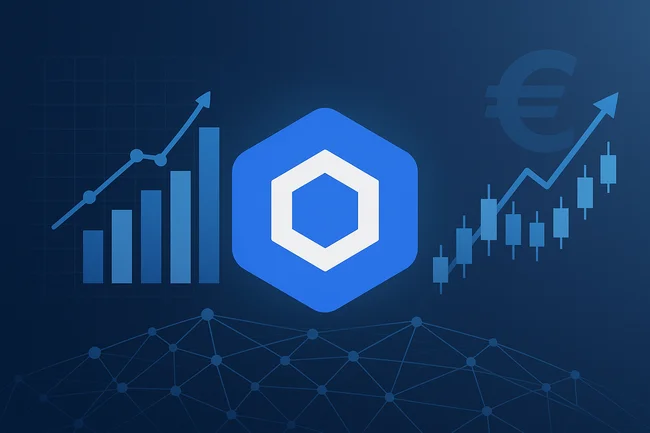Chainlink Launches DataLink Across 40 Blockchains With Deutsche Börse Partnership

Chainlink has rolled out its new DataLink service across more than 40 blockchains, providing over 2,400 protocols and institutions with access to financial market data previously limited to traditional exchanges. The launch, announced this week, includes a partnership with Deutsche Börse Market Data + Services, one of the largest exchange operators in the world. DataLink is designed to deliver institutional-grade information to blockchain networks, including real-time data from equities, derivatives, and foreign exchange markets. According to Chainlink, Deutsche Börse’s platforms—Eurex, Xetra, 360T, and Tradegate—will make their feeds available on-chain for the first time. The exchange group processes over €1.3 trillion in securities trading annually and distributes more than 4 billion data points each day. Strategic Move for Financial Data Access The collaboration signals a step toward bridging traditional finance with digital assets by making established datasets accessible in decentralized environments. Eurex, Europe’s largest derivatives exchange, along with Deutsche Börse’s other venues, will provide a broad range of multi-asset market information spanning stocks, futures, and currency pairs. Chainlink said the service operates as a publishing layer, enabling institutions to provide verified data directly to blockchains without building separate infrastructure. By doing so, organizations can extend their existing datasets into blockchain ecosystems while maintaining the security and integrity required for institutional use. Potential Impact on Onchain Economy Analysts view the initiative as a foundation for new types of blockchain-based financial products. By making regulated market data available in decentralized systems, DataLink could support the creation of services such as tokenized securities, risk management tools, and settlement mechanisms that rely on verified pricing. The integration across more than 40 mainnets expands the availability of financial information to a wide range of decentralized finance applications. Chainlink noted that additional blockchains are expected to be added in the coming months as adoption grows. Industry observers point out that reliable data access has been a persistent challenge for blockchain applications seeking to replicate or complement functions of traditional markets. With institutions like Deutsche Börse entering the space, proponents argue that data-driven financial products may develop more rapidly within decentralized networks. The rollout of DataLink highlights the increasing overlap between traditional exchanges and blockchain technology. While the long-term impact remains to be seen, the availability of regulated financial data on-chain could accelerate institutional engagement in the digital asset sector.

